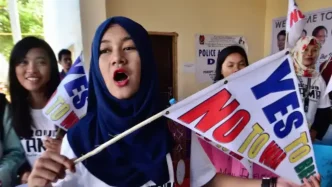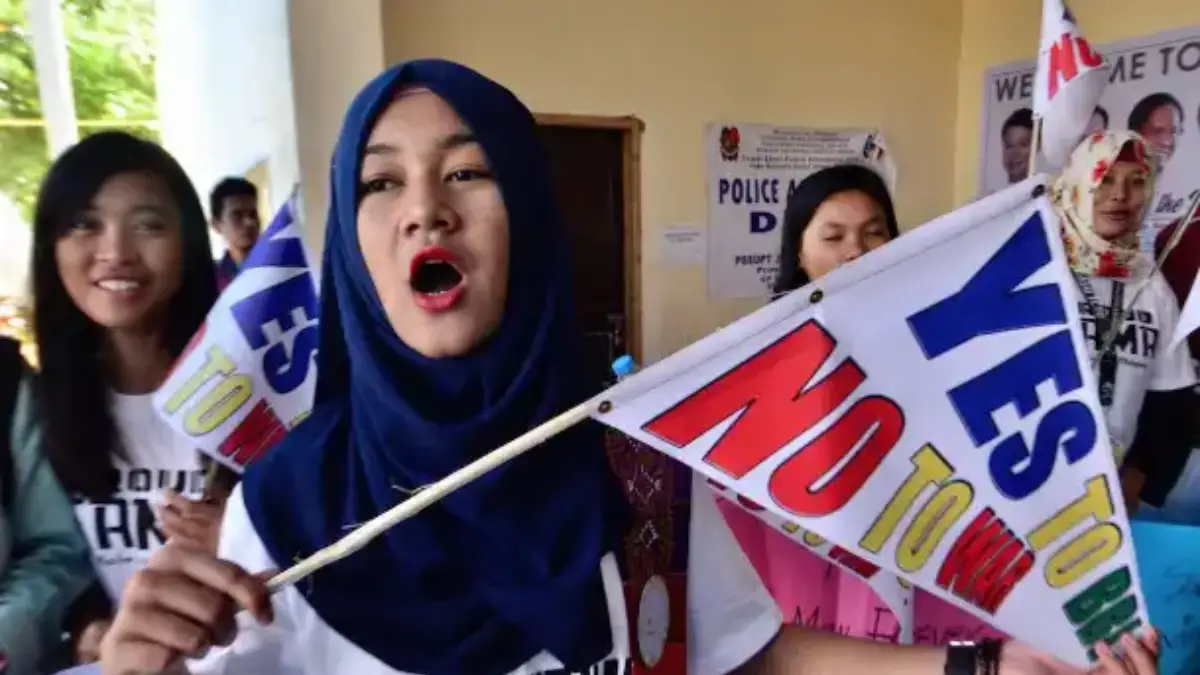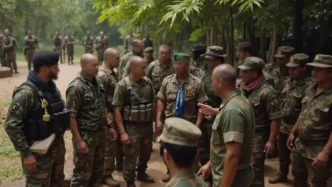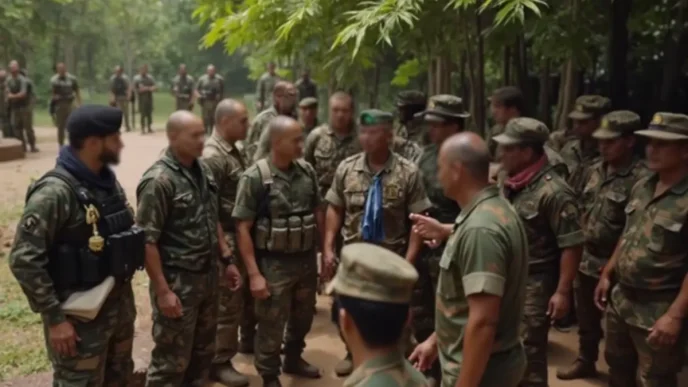The Organization of Islamic Cooperation (OIC) has called on its member states to provide sustained support for the Bangsamoro Autonomous Region in Muslim Mindanao (BARMM), a semi-autonomous region in the southern Philippines. This appeal comes as the region grapples with the complex transition to self-governance following decades of conflict, while local initiatives, such as volunteer taxi drivers combating overcharging in urban centers, reflect broader societal efforts to address governance and fairness at the grassroots level.
A Call for International Solidarity
The OIC, a 57-member intergovernmental body representing Muslim-majority countries, recently reiterated its commitment to the peace process in the southern Philippines. In a statement reported by Asia News Network, the organization urged its members to offer financial, technical, and political assistance to BARMM, which was established in 2019 as part of a landmark peace agreement between the Philippine government and the Moro Islamic Liberation Front (MILF). The region, encompassing parts of Mindanao and nearby islands, is home to a significant Muslim population in the predominantly Catholic country.
The OIC’s call emphasizes the importance of international backing to ensure the stability and development of BARMM, particularly as it navigates the challenges of governance, economic growth, and reconciliation after years of armed struggle. The organization highlighted the need for capacity-building programs and infrastructure investments to empower local authorities and communities in the region.
Since its inception, BARMM has faced numerous hurdles, including delays in the full implementation of the peace agreement, sporadic violence from splinter groups, and the daunting task of rebuilding a war-torn economy. The OIC’s renewed focus on the region underscores a broader international concern that without sustained support, the fragile peace could unravel, threatening not only local stability but also regional security in Southeast Asia.
The Bangsamoro Peace Process: Progress and Pitfalls
The establishment of BARMM marked a significant milestone in the Philippines’ long-running efforts to resolve conflict in Mindanao, where separatist movements have sought greater autonomy or independence since the 1960s. The 2014 Comprehensive Agreement on the Bangsamoro, signed after years of negotiations, paved the way for the region’s creation, granting it greater political and fiscal powers compared to other administrative regions in the country.
However, the transition has been far from smooth. The Bangsamoro Transition Authority (BTA), tasked with governing the region until elections scheduled for 2025, has struggled to assert control over security and development priorities. Clashes between rival factions and extremist groups, some of which are linked to international terrorist networks, continue to pose threats. Additionally, the region faces systemic issues such as poverty, with many residents lacking access to basic services like education and healthcare.
The Philippine government, under President Ferdinand Marcos Jr., has pledged to support the peace process, but critics argue that national policies often fall short of addressing BARMM’s unique needs. For instance, delays in the decommissioning of former MILF combatants—a key component of the peace agreement—have fueled frustration among local stakeholders. Analysts suggest that without accelerated progress on these fronts, disillusionment could drive some factions back to violence.
International support, as advocated by the OIC, could play a critical role in bridging these gaps. Financial aid from member states, potentially channeled through development projects or training programs for local governance, might help stabilize the region. Yet, the effectiveness of such aid will depend on coordination with both the Philippine government and BARMM authorities to ensure it aligns with local priorities.
Local Governance Challenges and Grassroots Responses
While the OIC’s call for support focuses on high-level political and economic assistance, challenges of governance and fairness are also evident at the community level in the Philippines. In a separate but related narrative of local initiative, volunteer taxi drivers in urban areas like Manila have taken it upon themselves to address the issue of unregistered taxis overcharging passengers, a problem that undermines trust in public services.
According to a report by Asia News Network, these volunteers patrol the streets, identifying and reporting rogue cabbies who exploit both locals and tourists by charging exorbitant fares. Often working in coordination with local transport authorities, the volunteers aim to protect the reputation of legitimate taxi drivers while ensuring accountability in a sector plagued by regulatory gaps.
This grassroots movement, though seemingly unrelated to the political dynamics of BARMM, reflects a broader theme of Filipinos seeking solutions to systemic issues through community action. Just as BARMM struggles with governance and trust-building in the wake of conflict, urban centers face their own battles against corruption and inefficiency. In both contexts, the absence of robust institutional mechanisms often leaves citizens to fill the void, whether through armed struggle in the past or civic vigilance today.
The volunteer taxi drivers’ efforts also highlight the economic pressures facing many Filipinos. With fares sometimes inflated to as much as 1,000 Philippine Pesos (~US$18) for short trips, according to local estimates, the cost of living in cities like Manila continues to strain lower-income residents. Addressing such issues requires not just local initiative but also systemic reforms—paralleling the need for structural support in BARMM.
Regional Implications and International Stakes
The OIC’s involvement in the Philippines extends beyond BARMM, touching on broader geopolitical dynamics in Southeast Asia. The organization has historically played a mediating role in the Mindanao conflict, leveraging its influence to broker dialogue between the Philippine government and Muslim separatist groups. Its current push for member state support signals a recognition that the success of BARMM could serve as a model for resolving similar conflicts elsewhere, particularly in regions with significant Muslim minorities.
Moreover, stability in Mindanao has implications for counterterrorism efforts in the region. The southern Philippines has long been a hotspot for extremist groups, some of which have pledged allegiance to organizations like the Islamic State. A successful peace process in BARMM could weaken the appeal of such groups by addressing underlying grievances like marginalization and poverty. Conversely, failure to consolidate peace might provide fertile ground for radicalization, with spillover effects for neighboring countries like Indonesia and Malaysia.
For the OIC, supporting BARMM also aligns with its mandate to advocate for Muslim communities globally. However, the organization must navigate delicate diplomatic waters, ensuring that its actions are perceived as constructive rather than intrusive by the Philippine government, which remains sensitive to issues of national sovereignty.
Looking Ahead: Challenges and Opportunities
As the OIC rallies its members to bolster BARMM, the road ahead remains fraught with challenges. The region’s leaders must balance the demands of diverse constituencies, from former combatants seeking reintegration to civilians yearning for tangible improvements in their daily lives. At the national level, the Philippine government faces the task of fulfilling its commitments under the peace agreement while addressing competing priorities across the archipelago.
International support, if effectively coordinated, could provide a much-needed boost. Yet, the ultimate success of BARMM will depend on local ownership of the peace process—a lesson echoed in smaller-scale initiatives like the volunteer taxi drivers’ fight for fairness in Manila. Both stories underscore a common truth: in the Philippines, progress often hinges on the resilience and ingenuity of its people, whether in the halls of power or on the streets.
As the 2025 elections for BARMM approach, the coming years will test the durability of the peace agreement and the region’s capacity for self-governance. Whether the OIC’s call for solidarity translates into meaningful action remains to be seen, but one thing is clear: the stakes for the southern Philippines—and for Southeast Asia as a whole—could not be higher.
















